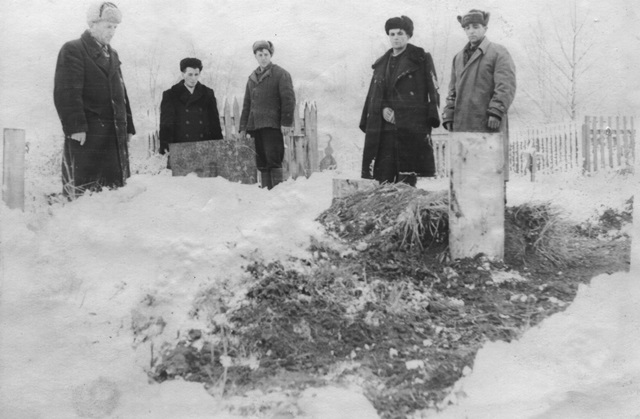Waiting for a reflection. Manipulations and false accusations against Poland (Part 2)
It is probably a sort of naivety, but I am constantly amazed at the level of aggression directed against the Polish state in matters relating to the commemoration of Nazi victims. This aggression manifests itself primarily in the excessively frequent repetition of false information, which becomes the basis for critical actions, often later subjected to internationalization.
Tomasz Rowiński
(…)
However, the damage was already done and untrue information began to be duplicated, incl. in a statement by representatives of the B’nai B’rith lodge published on social media, as well as in “Gazeta Wyborcza” newspaper on November 29th of this year:
“[…] Polish historical policy has reached the limits of disgust. This time, performed by the deputy minister of culture, Magdalena Gawin, who unveiled in Treblinka – attention, in Treblinka! – a monument to Poles who saved Jews. We would like to remind Magdalena Gawin, her boss Piotr Gliński, and the head of both of them that 900,000 of us were gassed in Treblinka extermination camp, and the participation of Poles on the ramp consisted mainly in selling water for dollars, gold, and diamonds. Before Poland starts erecting monuments for Poles in Jewish cemeteries, it must remember about the Jews murdered with the participation of Poles. There were, of course, Poles righteous among the nations who paid with their lives to help Jews. They deserve eternal memory and recognition for their courage and beautiful deeds – but not on that ramp! How far the Polish authorities have fallen in their miserable attempts to satisfy the appetites of voters who want to believe in this heroic fantasy. Some of our friends and relatives survived Auschwitz. A few survived Treblinka, they deserve honor.”
The authorities of the Małkinia commune, in turn, reacted to this letter and prepared a statement. It presents information on the location and form of commemorating Maletka, distorted in the statements of Grabowski and representatives of B’nai B’rith – Sergiusz Kowalski and Adam Friedman. They also reminded that the monument in the village was built through the initiative of the inhabitants themselves.
“[…] It is not true that the village of Treblinka forgot about Jews – victims of the Holocaust. The only monument that stood in the village of Treblinka at the site of the former railway station, commemorates solely the murdered Jews. In 2016, the call for the commemoration of the station […] was signed by over 500 residents of our municipality and directed it to the Jewish Historical Institute in Warsaw, the Polish State Railways, Polish Railway Lines, Mazowiecki Provincial Road Administration, the Regional Museum in Siedlce, Curia Diocese in Drohiczyn, the Municipal Council in Kosovo Lacki, the commune office in Upper Malkinia and the Museum of Struggle and Martyrdom in Treblinka”.
Do the opinions expressed by prof. Jan Grabowski and the statement of the B’nai B’rith lodge receive broader attention? In an interview with the OKO.press website on November 30th, Grabowski said: “In the case of recent ceremonies, the most disgraceful, even scandalous thing is the use of the name ‘Treblinka’. It is a proprietary, symbolic name that can only refer to the place where 900,000 were murdered. Jews. […] the fact that the unveiling of this scandalous monument was not met with a public outcry is a sad testimony to the state of our present society”. Should contemporary Treblinka disappear along with its inhabitants, since there is a place of extermination just a few kilometers away? It is hard to resist the impression that even the interviewer, Adam Leszczyński, introduced into his questions a tone of skepticism towards some of Grabowski’s theses. One can be convinced that the use of dishonesties helps neither prof. Grabowski nor his crusade in attracting allies even within his own circle.
GRABOWSKI IN SOLITUDE
However, the Jersulem Post article highlights a sentiment of loneliness of prof. Grabowski, for instance in the matter of estimating the number of Jewish victims who were allegedly killed at the hands of Poles. Grabowski in 2018 cited the number of 200,000 people, repeated by the daily “Haaretz”. Meanwhile, shortly thereafter, the Jerusalem Post impugned these estimates, proving that Grabowski, relying on the findings of Szymon Datner in 1970, had made a research error. The data referred to about 100,000 victims killed by Germany and 100,000 individuals saved by Poles. Are these subsequent examples of failing to present the truth the proper reason behind why, as stated by prof. Grabowski in the JP interview, he is unable to find support in his activities?
When I recently browsed the profile of prof. Jan Grabowski in social media, I noticed that the previously cited position regarding the commemoration of Jan Maletka had disappeared. What can I say? It’s a good thing, it’s a sign of reflection, although it is probably rather impermanent.
This article was published in December 2021 in “Do Rzeczy” magazine.



